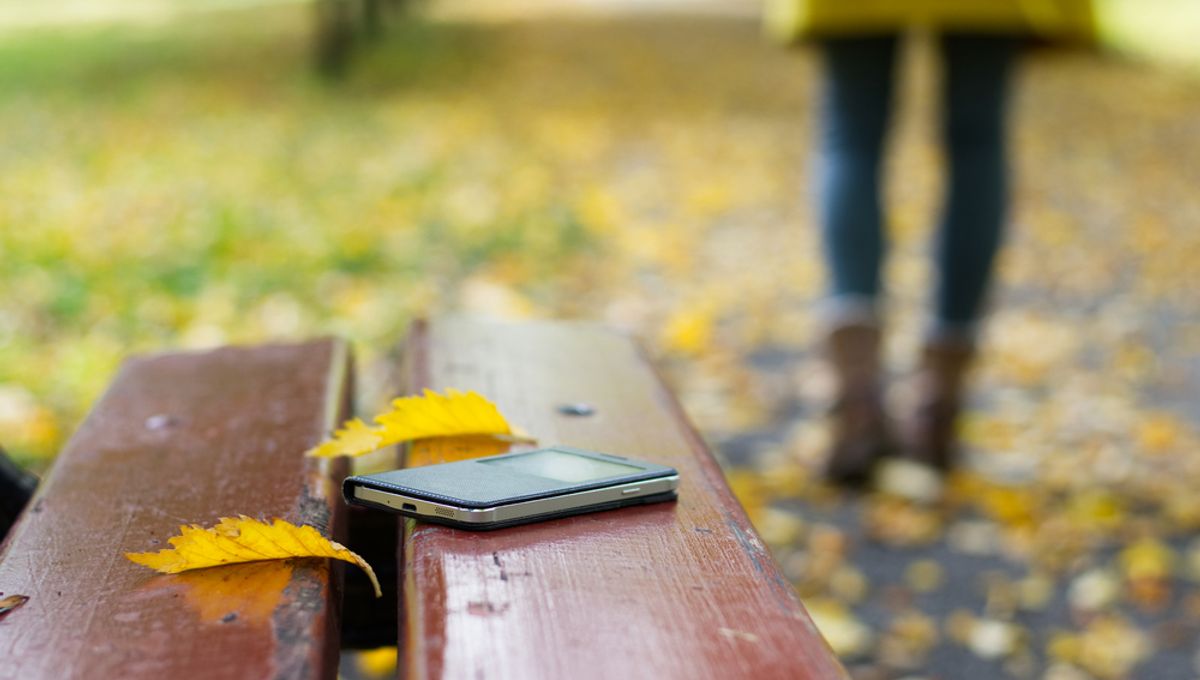
Smartphones have been a part of our lives for so long that it’s difficult for many of us to remember the Before Times, but even 20 years ago the kind of tech we see in today’s phones would have been unimaginable. As their role in modern society has increased, scientists have scrambled to try and keep tabs on the effects of all this phone use. You’ve probably heard of phubbing – snubbing real people in favor of staring at your phone. Now it’s time to introduce you to another phone-related malady that you could be suffering from: nomophobia.
If you squint at the word “nomophobia” you can just about tell that it’s derived from the phrase “no mobile phone phobia”. It describes the panic and anxiety that people may feel when they have to navigate the world without a phone. Some would be quick to dismiss this, but feeling jittery if you accidentally leave your phone at home is understandable given the myriad things that they’re used for, from paying for stuff to finding your way around.
According to a 2019 study in the Journal of Family Medicine and Primary Care, the term nomophobia dates back as far as 2008, when research in the UK found that around half of mobile phone users felt some degree of anxiety when they misplaced their phone, had no network coverage, or ran out of credit (remember that?).
Since then, surveys in various populations have corroborated these results. For example, one study published in 2017 found that 60 percent of first year medical students who responded to a survey had “moderate” nomophobia, and a further 22.1 percent were described as “severe”. A further study in 2018 included nearly 1,000 participants and drew some links between nomophobia and personality.
More recently, a study led by a team at Bartin University in Turkey sought to expand on the existing literature by assessing the relationship between nomophobia and four factors: emotional intelligence, interpersonal problem-solving, perceived stress, and self-esteem.
According to PsyPost, the theory was that people with nomophobia may be susceptible to feelings of stress and uncertainty that come from the loss of connectedness they experience when they’re without their phones. They may also be more likely to have low self-esteem, which could impact their ability to interact socially. It was suggested that high emotional intelligence and strong problem-solving skills could be protective against nomophobia and thereby relieve stress that would be associated with the condition.
The team recruited 543 volunteer university undergraduates who completed an online survey, and some of the results ran counter to the authors’ initial hypotheses.
“In the current study, it was concluded that emotional intelligence had no significant direct effect on nomophobia,” the authors wrote. “The study also showed that nomophobia has no significant impact on perceived stress.”
In the end, they concluded that “interpersonal problem-solving was also found to have a direct impact on nomophobia and perceived stress. Accordingly, high levels of interpersonal problem-solving translate into low levels of nomophobia and perceived stress.”
More research is needed to continue to unravel the factors that may lead someone to develop nomophobia, and the authors highlighted the need to include other age groups in future work.
How do I know if I have nomophobia?
As widespread as nomophobia would appear to be, it’s not included as a standalone disorder in the latest edition of the Diagnostic and Statistical Manual of Mental Disorders (DSM-5), the diagnostic standard used by mental health professionals in the USA. But the DSM–5 does include diagnostic criteria for a “specific phobia”, which it defines as “marked fear or anxiety about a specific object or situation” – presumably, this could include being without your phone.
The possible symptoms of nomophobia therefore mirror those that will be familiar to sufferers of other phobias: fear or panic when you can’t access your phone; anxiety at the thought of being without your phone for a period of time; and even physical symptoms like shaking, sweating, a tight chest, and a rapid heart rate.
In order to mitigate their fear, people with nomophobia might take steps to ensure their phone is nearby at all times and check their notifications more regularly than is strictly necessary.
Preferring to keep your phone in eyeshot is not automatically a sign that you have nomophobia, but if your need to have your phone to hand is having an impact on your daily life, or if you do experience any of these symptoms of anxiety when you can’t use your phone for whatever reason, it could be helpful to speak to a healthcare professional.
And one more thing: if your phone is never far away, it’s wise to give it a clean from time to time.
The new study is published in the Journal of Technology in Behavioral Science.
The content of this article is not intended to be a substitute for professional medical advice, diagnosis, or treatment. Always seek the advice of qualified health providers with questions you may have regarding medical conditions.
All “explainer” articles are confirmed by fact checkers to be correct at time of publishing. Text, images, and links may be edited, removed, or added to at a later date to keep information current.
Source Link: Nomophobia Is On The Increase – Do You Have It?